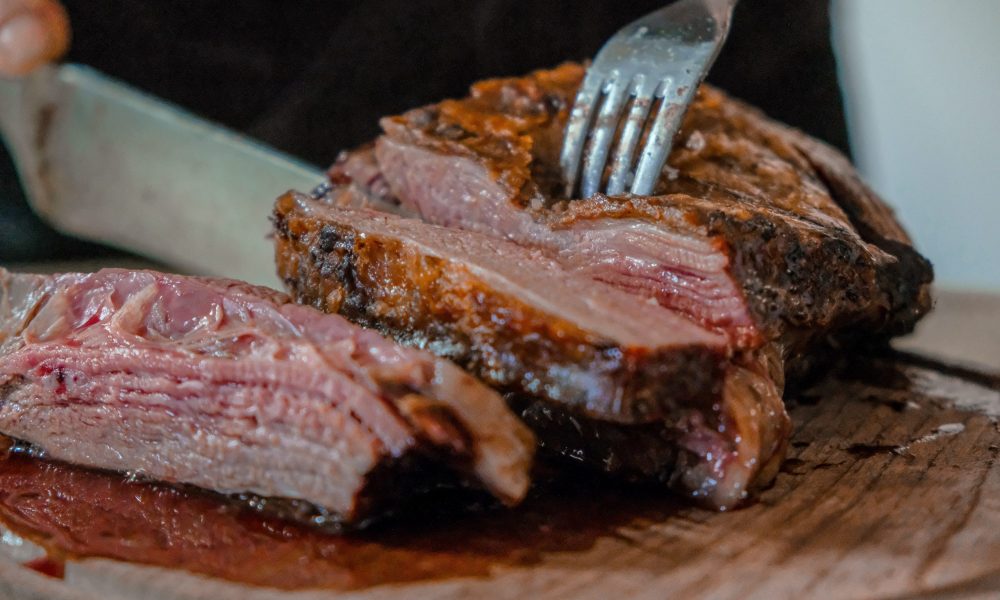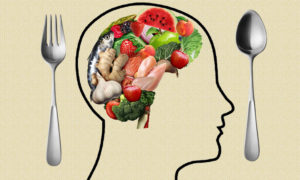
How Long to Rest Between Sets for Bigger Badder Gains
How Long to Rest Between Sets for Bigger Badder Gains Rest periods are one of the most misunderstood and unsexy aspects of strength training. However,

You know what’s awesome? Losing fat.
You know what’s not awesome? Losing muscle.
Sounds quite obvious, but it’s dearly common to see people so obsessed with pure weight loss that they forget the type of tissue they lose is more important than how fast the scale drops. I’ve seen many rookie dieters lose significant scale weight, but also a large percentage of muscle mass making their efforts nearly pointless.
This results in a few dire consequences more unappealing than being left on read by the hot girl at your local gym.
Losing muscle will surely:
So if I didn’t already make it painfully clear, losing muscle flat out sucks! Fortunately, preventing muscle loss while you diet down is simpler than you think. Here’s how to do it:
Strength training is the most important thing you can do to retain muscle when dieting. When you’re in a caloric deficit (which is generally necessary for weight loss), your body is breaking down stored energy.
To retain your gains, you need to give your body a reason for it to spare burning off your precious biceps. You need a way to scream to your body, “Yo bro! That lean muscle tissue that makes me look sexy, yeah don’t burn that off. I really need that.”
Well in essence, strength training is your primary way of sending that message. If your strength training is sufficiently simulative, it will abundantly signal for the creation of muscle proteins and preserve muscle mass (4).
This is why it’s so important to strength train optimally in order to retain as much muscle as possible. You want a program set up with optimal frequency, intensity, exercise selection, and more.
Many training practices and variables that build the most muscle when you’re bulking will retain the most muscle when you’re cutting.
Ultimately, nothing beats strength training for this very purpose (7,8,9,10,11). Doing purely cardio isn’t a safe bet and dieting without any exercise at all almost guarantees muscle loss (5,6).
Even overloading on protein without strength training can cause muscle loss in young healthy individuals (22).
I’m a big fan of aggressive deficits, but not so extreme that they cause muscle loss. This is why aggressive fad diets like extreme fasting or juice cleanses will inevitably cause muscle loss.
The deeper the deficit, the faster weight loss will occur, but the risk of losing muscle also increases. With a smaller deficit, weight loss will be slower, but muscle retention is more likely (12).

So now that we understand there is such a thing as losing weight too fast, how fast can we maximally lose fat without taking sacrifices to our precious slabs of muscle mass?
It ultimately depends on your body composition. Fat is protective of muscle loss, so the less of it you have, the more careful you have to be about losing weight too quickly (13). On the other hand, the more fat you have, the more aggressive you can diet without worrying about muscle loss. In fact, obese individuals can diet on extremely low-calorie diets without strength training and not lose muscle in many instances (14).
To put things into tangible numbers, here are some guidelines to follow based on body fat levels:
Protein is known as the muscle building nutrient. It’s quite crucial to consume enough protein daily to ensure muscle retention (15). Any less than 1.6 grams per kg of bodyweight daily can compromise muscle.
You’re welcome to consume more than this, but contrary to popular belief, research shows more protein beyond an already optimal intake doesn’t enhance muscle retention while dieting (16,19). This is seen in studies with very catabolic scenarios, piles of protein just don’t increasingly save your muscles as commonly emphasized by meathead trainers (17).
In fact, trained females may be able to get away with even less protein and still retain their muscle mass (21).

So if you’re not already consuming optimal protein, what the heck are you doing with your life? Go eat some more animal flesh or chug down an extra protein shake. However, for individuals already doing that, it’s physiologically unnecessary to increase intake when dieting. Beyond an optimal point, protein dosages just don’t add any further muscle retention benefits. Period. Lifting weights and having optimal calories are usually more important.
With more food, your recovery is enhanced, so you can train with higher training volumes during maintenance or an energy surplus (bulking). However in an energy deficit, recovery is compromised due to more stress and less fuel, so it would make sense to reduce training volume to allow for sufficient recovery and muscle adaptations to occur.
For example, football players found their strength and power improved more when reducing training volume during Ramadan fasting (18).
A good rule of thumb is the deeper the deficit, the more you should consider reducing training volume especially if performance is not progressing. A reduction of 10-33% should be good depending on the individual and the size of the deficit. The size of the reduction might increase as you stay in a deficit longer as well.
If your performance is progressing just fine, feel free to not reduce training volume especially if your training volume wasn’t that high to begin with which is usually the case with less advanced lifters. Reducing training volume when you would’ve recovered fine anyways would just needlessly decrease the muscle building signal. In short, it’s not always necessary to reduce training volume when dieting.
So as your body torches off calories from bodily tissue during a diet, the dream is for fat to fall off and muscle to stay on board.
This dream can be made possible by lifting weights, not dieting too fast based on current body fat levels, eating adequate protein, and reducing training volume if needed.
If you do that, you have nothing to worry about when it comes to muscle loss. All your precious gains will stay loyal to your body like a lifelong faithful spouse.
Kilroe, Sean Paul, et al. “Dietary Protein Intake Does Not Modulate Daily Myofibrillar Protein Synthesis Rates or Loss of Muscle Mass and Function during Short-Term Immobilization in Young Men: a Randomized Controlled Trial.” OUP Academic, Oxford University Press, 29 May 2020, academic.oup.com/ajcn/advance-article-abstract/doi/10.1093/ajcn/nqaa136/5848531?redirectedFrom=fulltext.
Flack, Kyle D, et al. “The Consequences of Exercise-Induced Weight Loss on Food Reinforcement. A Randomized Controlled Trial.” PloS One, Public Library of Science, 18 June 2020, www.ncbi.nlm.nih.gov/pmc/articles/PMC7302707/.
Sign up for AwesomeFitnessScience Weekly. You’ll get juicy insider secrets, updates, and stories.

How Long to Rest Between Sets for Bigger Badder Gains Rest periods are one of the most misunderstood and unsexy aspects of strength training. However,

“I’m just so hungry all the time no matter how much I eat” People who say this simply suck at selecting satiating foods.

You ready to go from a mere peasant who can’t stop eating to a satiated almighty weight loss emperor?